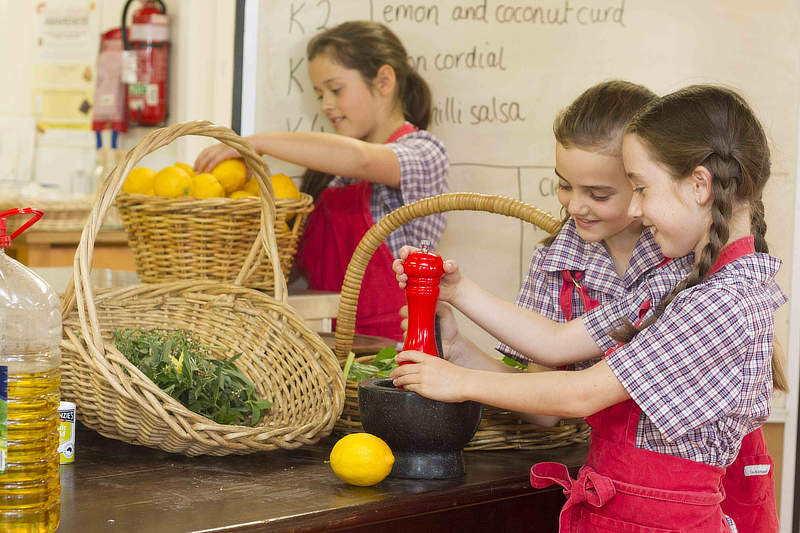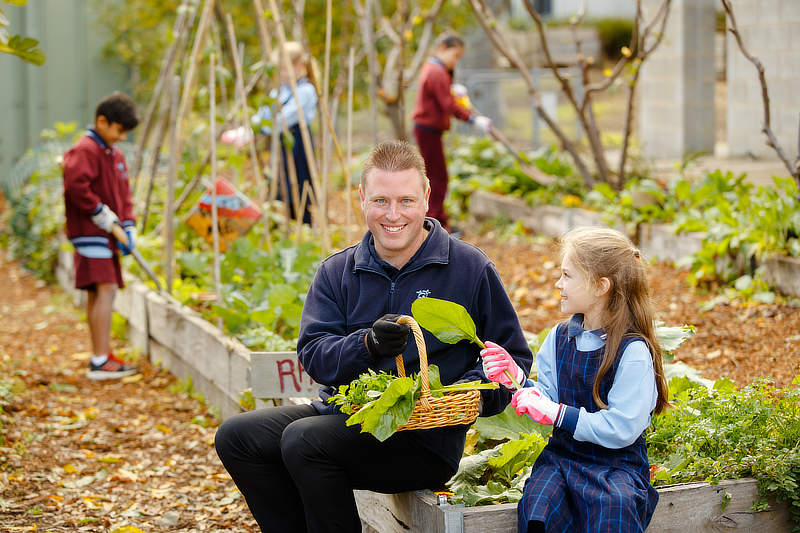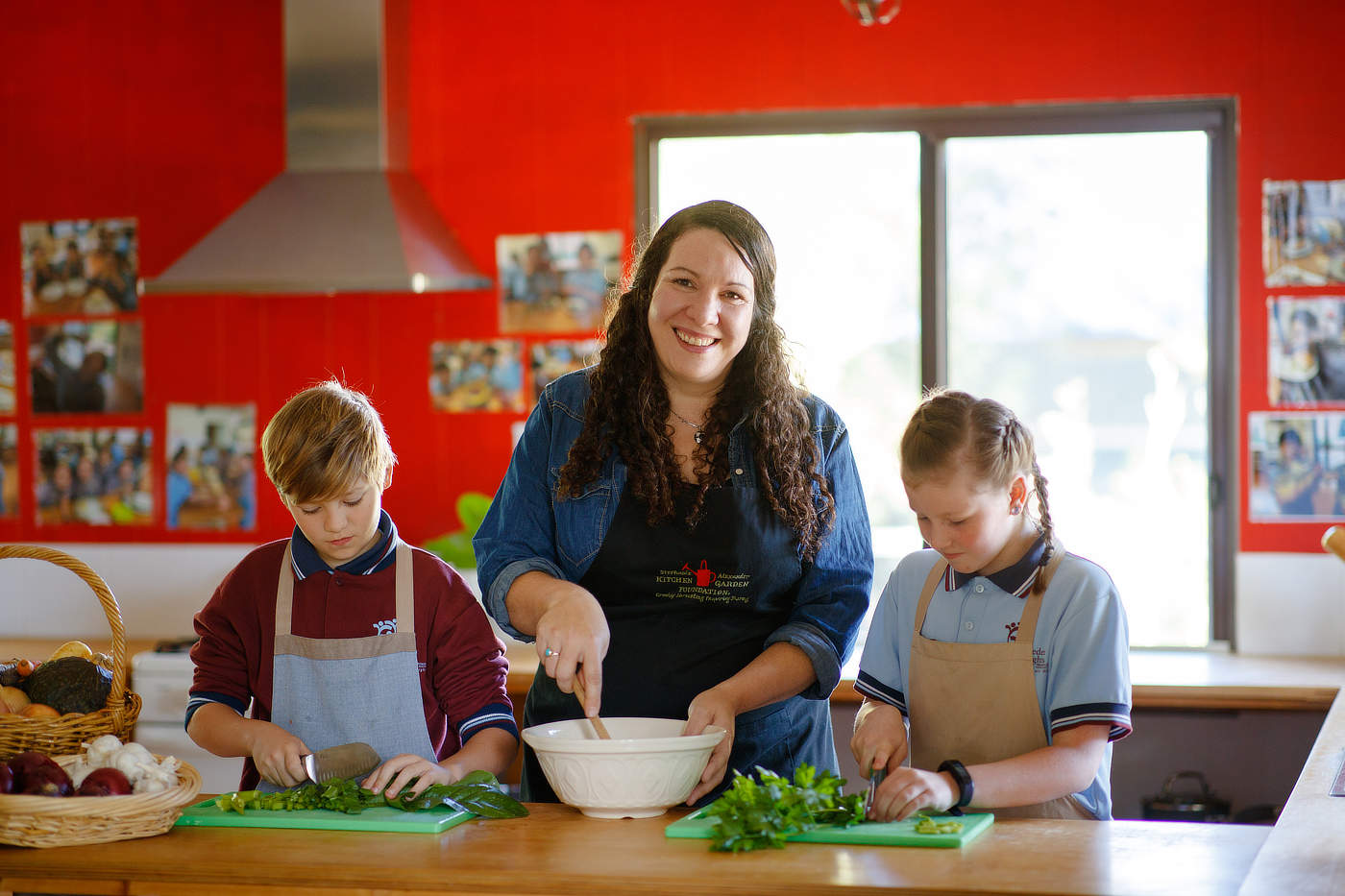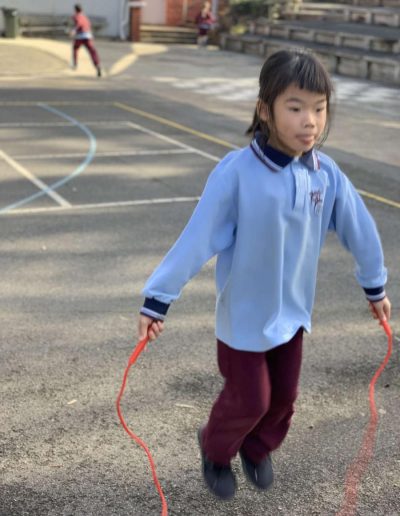Curriculum
Digital Technologies
At Weeden Heights Primary School we have a strong commitment to digital technologies and are focused on continual improvement while striving to provide our students with the latest technologies to prepare them for life and beyond. Digital Technologies forms a part of their daily activities in Literacy, Numeracy and Inquiry Learning. This is done to support and extend student learning.
Students are provided regular, supervised access to laptops, desktops, iPads, recording equipment and every classroom is equipped with an Interactive Whiteboard. Students also have access to our computer lab on a weekly basis or as the need arises. With banks of laptops and i-pads available in every classroom, students have plenty of access to conduct internet research and have the opportunities to demonstrate their learning with digital technologies. Teachers embed ICT into every lesson across all curriculum areas and are provided with ideas and training to keep up to date with student’s learning needs.
Our focus around quality teaching practice, particularly in the areas of Literacy and Numeracy, has not changed, however the way students learn has, so we are continually developing and improving our classrooms and teaching practice to support the needs of learners of today. We do not require our students to provide their own devices as we believe equipment should be used for authentic purposes. Our choice is to not limit the possibilities available to our students in their day to day learning and all expressions of learning are embraced by collaborative learning and extensive communicating. Exposure to a wide variety of digital tools engages students with interactive tasks eliciting broader questioning, critical thinking, creativity, curiosity and independent learning as well as responsibility.
Our students are explicitly taught Internet protocols and strategies for exchanging information, Cybersafety and the responsibilities they have as global citizens. Students practice responsible use of ICT and develop positive attitudes towards ICT that foster lifelong learning, personal growth, collaboration and productivity.
Digital technologies is integrated across the primary school curriculum where skills are developed within the curriculum and not taught in isolation. We use applications to support the development of learning outcomes across the curriculum and to engage the students in collaborative, co-operative and problem solving activities. Multimedia is particularly beneficial in the development of higher order thinking skills and in allowing for different learning styles.

eSmart
Weeden Heights Primary School is an accredited eSmart school. As a result our students are taught to be smart, safe and responsible when using of information and communications technology and it is embedded as a cultural norm. Students, teachers and the wider school community are equipped to embrace the best these technologies can offer, while being savvy about the pitfalls.
To ensure that our students are competent and safe users of new and emerging technology, we are committed to implementing a program which educates our students in the safe, responsible and ethical use of the internet and social networking.
As such, we have developed an eSmart curriculum for the students and teachers to use. This is part of our weekly Wellbeing program at each year level. We provide parent information through the school newsletter and provide opportunities for staff professional development.
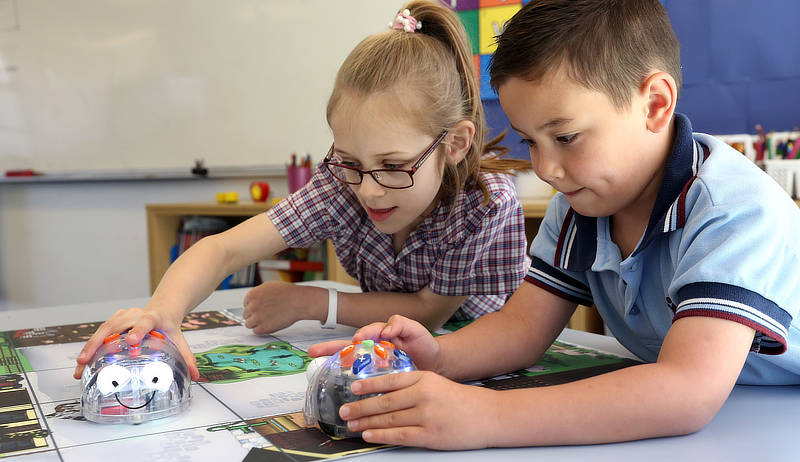
Literacy
Teaching Literacy
At Weeden Heights Primary School, we believe that Literacy is the key to the development of all of our students. Through our whole school approaches to teaching Literacy, we aim to develop critical and creative learners with the capacity to think, analyse and communicate effectively. The three modes of language focused on in the Victorian Curriculum and at Weeden Heights are: Reading and Viewing, Writing and Speaking and Listening
From Foundation onwards, we teach with an explicit phonics approach. Students study sounds and sound patterns to develop their skills in reading, spelling, writing, and speaking and listening. Throughout the school, students participate in regular phonics and spelling sessions to develop their spelling skills and vocabulary knowledge.

Reading and Viewing
The daily reading program builds from learning to read, with students learning to decode texts, to reading to learn, where students develop high-level comprehension skills across a wide range of text types. Learning in our classrooms is differentiated and engaging to ensure that students’ individual needs, interests, and abilities are catered for. Teachers use regular and consistent assessment practices to ensure students’ next steps for learning are individual and visible.
The CAFÉ reading approach is implemented from Prep to Year 6 and is a strategy based program. Students develop a plethora of strategies to support their reading highlighted through the CAFÉ menu: Comprehension, Accuracy, Fluency and Expanding Vocabulary.
Daily lessons focus on a key strategy which is reinforced through individual reading at each students own reading level, whole class reading, student groups and individual activities. The teacher tracks and monitors the student’s progress through each lesson.
Speaking and Listening
Opportunities to rehearse speaking and listening is inbuilt into every lesson in the day through share time. Students use a variety of strategies to feedback, share ideas and present their work to the class. Share time occurs in every curriculum area and is assessed authentically.
Our Public Speaking program compliments the development of formal speaking in our students. Techniques are explicitly taught and developed through weekly opportunities. All students are involved in Public Speaking competitions and senior students represent our school in public speaking competitions. We believe in teaching our students confidence which will place them in an excellent position to take risks and present themselves in the best possible way.
Writing
Our Writing Program provides a clear whole school approach to enhance teaching and learning practices and improve student outcomes. We use the VOICES writing approach, which is enhanced by the explicit teaching of the 9+1 Traits of Writing, to develop authorship skills in our students.
Each element of VOICES (Voice, Organisation, Ideas, Conventions, Excellent Word Choices and Sentence Fluency) is a focus in each of the daily writing session. Linked with the traits which includes presentation, we explicitly teach these elements and traits alongside the required text types. Each lesson across the school begins with modelled or shared writing. Teachers demonstrate and explicitly teach the focused Text Type, with associated grammatical features and vocabulary lists.
Students are then given the opportunity to involve themselves at their level to practise tools that have been demonstrated. At the end of each session, students share their writing, their learning experiences during their writing and to receive positive feedback from their classmates. After following the Writing Process, the students are able to publish their text to share with and audience.
Writer’s Notebooks are a feature of our writing program and are worked in once a week. The students are given opportunities to explore writing styles and text types of their choice through ‘seeds’ which they have collected and are excited to write about.
Spelling and Handwriting
With the Victorian Curriculum, spelling and handwriting is taught across all literacy areas. Our school uses an individual spelling program but it does begin in Prep and Year 1 with a structured program, Jolly Phonics. Handwriting is taught weekly with explicit teaching and reinforced through the publishing of student work across the curriculum.

Numeracy
Teaching Mathematics
In line with the Victorian Curriculum, Weeden Height Primary School has a strong focus on developing numeracy skills and the use of the proficiency strands of fluency, understanding, problem-solving and reasoning to scaffold students’ understanding in mathematics.
Students are explicitly taught and exposed to concepts from the three strands of Mathematics:
- Number and Algebra
- Measurement and Geometry
- Statistics and Probability
At Weeden Heights Primary School, we understand that each student’s understanding develops at different rates and in different ways. We value the individual learning styles of each student and strive to target instruction and classroom experiences to cater for each student’s point of need. As such, teachers use a range of assessment tools to identify the next learning step for each of our students and adjust lessons and instruction to ensure every student is appropriately challenged and can succeed regardless of their learning level.
All classrooms follow a whole school approach to ensure there is consistency in approaches. This includes: fluency games, tuning into a task, shared mathematics, group tasks catering for individuals and share time to articulate the learning of the session. Teachers use a variety of assessments eg Essential Assessment, to complete pre-test students. This ensures that the content of the unit caters for the level of each child in the classroom. Students then work through the three week unit using a variety of tasks and problem solving before sitting a post-test.
Prep
During Prep, at this stage the focus for students’ is developing their number sense. Learning experiences provide the essential foundations that underpin students’ mathematical understanding. Students begin to link verbal language with concrete materials and written numbers.
Years 1 and 2
In Years 1 and 2, students continue to build their numerical knowledge by exploring fundamental mathematical ideas and solidifying their understanding of number operations. Teaching experiences build on foundational skills to allow students to explore a range of concepts, with an emphasis on the use of games and concrete materials to effectively visualise and communicate ideas.
Years 3 and 4
In Years 3 and 4, students apply their mathematical understanding in a range of new contexts. Students develop efficient mental strategies for computation and apply their mathematical knowledge to rich application tasks. Students continue using a range of materials to communicate their understandings as well as beginning to represent equations using formal algorithms.
Years 5 and 6
In Years 5 and 6, students apply their mathematical knowledge in familiar and unfamiliar situations to solve problems efficiently. They apply multiple concepts across a range of tasks that showcase their individual understandings and begin to select from their range of mathematical strategies to create and solve problems.
Students are provided with numeracy learning experiences that are challenging, exciting and enjoyable, as well as useful in achieving a range of purposes and solving a range of common daily problems. These are rich, real tasks using a variety of stimulating experiences. Students are encouraged to work with their class teacher at their own rate of mathematical growth.
Structures within all classes cater for individual differences through the provision of open-ended learning activities. A wide range of equipment is always available at all age levels. All mathematical concepts are progressively developed within the context of meaningful learning situations. Numeracy at all levels encompasses cooperative learning and child centred problem solving activities as well as the use of modern technology such as computers and calculators.
Student’s numeracy learning is also supported through individualised online programs. We currently use Matiffic and code.org

Inquiry Learning
Student’s learning experiences occur within an integrated curriculum, with the emphasis on the integration of the ‘content’ areas of curriculum. They are set up as investigations built on students natural curiosity about the world and the way that it works.
The content areas include language, literature, literacy, civics and citizenship, science, information & communications technology and health & physical education. The ‘process’ areas of the curriculum (speaking, listening, reading, viewing, writing, Mathematics, STEAM, Performing Arts and Visual Arts) are the means by which students express their understandings of the curriculum content. From Year 1 onwards, we work on a 2-year curriculum cycle where each level explores a unit per term over 8 terms
At Weeden Heights Primary School the focus for our inquiry approach is on ‘how we know’ rather than ‘what we know’. Through rich and flexible inquiry units, students are provided with challenging and stimulating learning experiences, allowing them to explore and build upon their knowledge and understandings to develop core skills.
The curriculum delivery aims to equip students with the skills and values to take advantage of learning opportunities and interact in the world today.
We aim and provide opportunity to:
- Develop the students’ ability to pose questions and plan, research, investigate and search for answers and solutions
- Develop the skills needed to convert information and answers into useful knowledge that can be applied to new situations and prompt further learning
- Provide students with different ways of viewing the world, communicating about it and successfully coping with the questions and issues of daily living
- Develop an understanding that all knowledge changes over time as people challenge, shape and contribute to it
- Demonstrate that there are often multiple perspectives for looking at, analysing and understanding things
- Provide learning opportunities that are more relevant as concepts are learned in context and relate to existing knowledge and experiences
- Provide rich learning opportunities that are relevant to our students and cross over all learning domains, eg. English, Mathematics, Civics and Citizenship, Science, Health, Humanities, ICT, Creativity Design Technology and Art
- Encourage students to become independent, resourceful and responsible learners
- Develop thinking processes and strategies as sequentially developed in the Thinking Processes Domain of the Victorian Curriculum and in line with Weeden Heights Primary School’s Inquiry scope and sequence.
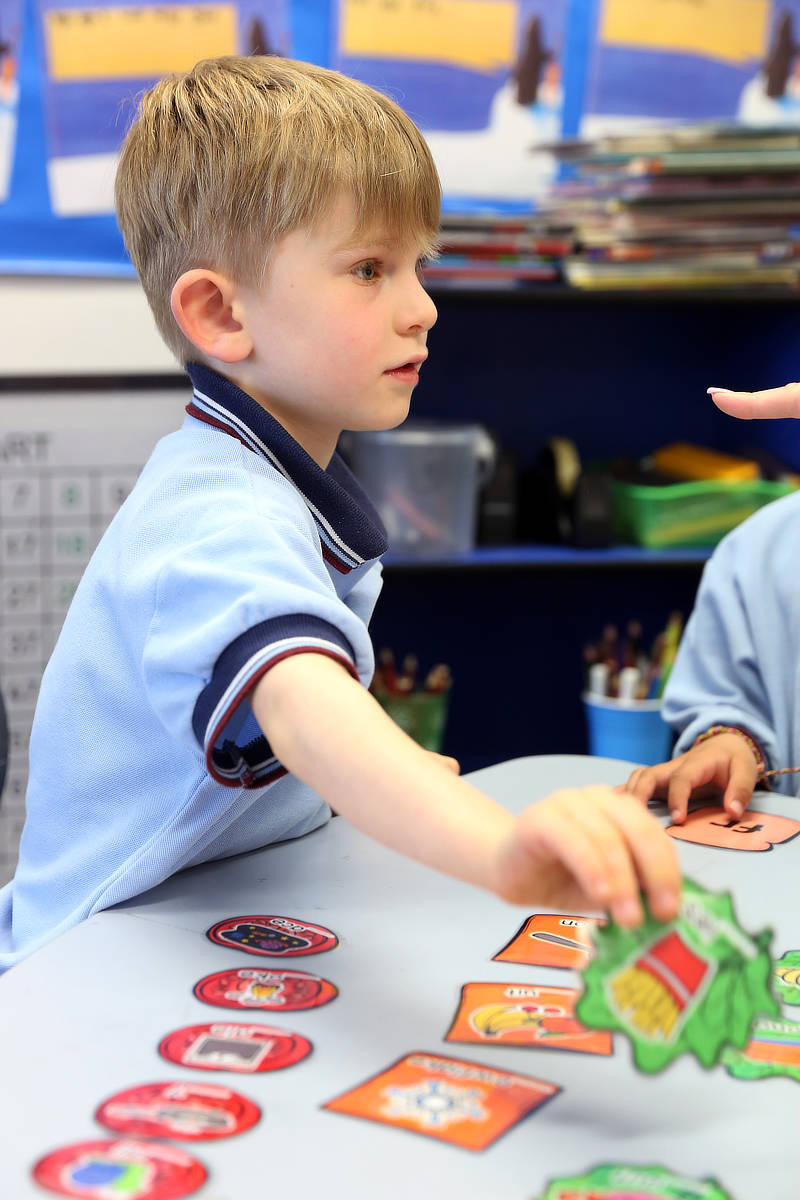
Specialist Programs
The specialist programs offered at Weeden Heights is extensive because we value the enrichment opportunities that our students need. All of our students from Prep to Year 6 enjoy and are involved in weekly programs. Skills are continually developed across the school and students are given the opportunity to be creative.
Students from Prep to Year Six have a weekly session in:
- Physical Education
- Visual Arts
- Performing Arts
- Language – French
- STEAM (Science, Technology, Engineering, Arts and Mathematics).
- In Years 3 to 6, students are also involved in our Stephanie Alexander Kitchen and Garden Program. Students have a session in the garden (environmental science) with a specialist teacher and two sessions per week in the kitchen (food technology) with the chef.
With such a broad range of specialist programs, our students are given every opportunity to apply their academic skills, work creatively, provide greater opportunities for personal learning and to work collaboratively. The programs also underpins our philosophy of ‘healthy bodies creates healthy minds’ and our motto, ‘Futures are Bright…at Weeden Heights Primary School’.
Physical Education & Health - Learn More...
At Weeden Heights Primary School our Physical Education and Sport program aims to encourage every student to be active every day. Students are engaged in physical activity, games and sport which provides them with the knowledge, skills and behaviours for improved wellbeing. Students’ involvement in physical activity can take many forms, ranging from individual, non-competitive activity through to competitive team games.
Structured movement activities and active play enable students to develop and practise the fundamental movement skills and tactical knowledge to improve individual and team performance.
Students participate in team sports which promote a sense of cooperation, team-work and fosters an appreciation for ‘good sportsmanship’.
The Physical Education program aim to provide students from Foundation to Year 6 to continually build upon their skills through modified games and activities. Our main emphasis is on participation for all and an enjoyment of physical activity.
Some of the physical education opportunities available to students at Weeden Heights include:
- Weekly Physical Education classes with additional classes conducted through year levels
- Summer and Winter Interschool Sport
- Swimming Lessons
- Swimming Carnival
- Cross Country
- Athletics
- Hoop Time (Basketball)
- Sports Clinics throughout the year
- House Sports Competitions
Senior Sport
All Year 5 and 6 students are given the chance to participate in Interschool Sport. This is an extremely important facet of our Sport Program. We are fortunate to belong to the Waverley East Sports Association (WESA). This Association promotes participation, enjoyment and teamwork.
Students at our school are encouraged to be involved in competitive sport. This enhances physical and social growth and allows them to develop characteristics of good sportsmanship.
Students in Years 4-6, all have the opportunity to compete in swimming, athletics, Hoop Time (basketball) and cross country events.
Language | French - Learn More...

Learning another language greatly benefits the cognitive development of students and widens a student’s perspective about the existence of other cultures around the world. In a world that is also becoming increasingly globalised, the development of language skills can have a practical benefit in adult life.
At Weeden Heights we offer French as our second language to English to all students on a weekly basis. French is one of the original romance languages that is spoken by more than 220 million people around the world. It is the official language in over 30 countries, especially in Europe, Africa and many states in Pacific region. It is also one of the main languages used by important international organisations like the United Nations.
During Language, Weeden Heights places great emphasis on understanding the French culture as well as basic communication and grammatical skills. France is often considered the language of culture, so lessons will often combine the language with insights into the worlds of Gastronomy, the Liberal Arts, French History and Architecture. This not only provides students an insight into modern French culture but it adds practical interest into the learning experience. Examples of this might be:
- learning descriptive adjectives while tasting famous French foods such as blue cheese or mousse au chocolat (chocolate mousse)
- examining different regions of France by following the famous Tour de France bicycle race,
- learning and singing modern popular French songs
- using famous French characters such as Tintin and Astrerix as themes for oral and written activities
Combining culture and language in a learning strategy capitalises on the natural curiosity that young minds possess about the world we live in. Outstanding performers in the French language program in the Middle and Senior years are awarded prizes of recognition for their efforts and each year a Language Captain from Year 6 is selected to be a part of the Grade 6 Student Leadership team.
The entire school also prepares for and participates in a French Cultural Day, which is one of the highlights of the annual School Calendar.
Performing Arts - Learn More...
Performing Arts is taught in a huge performing arts space in our school hall and is taught weekly to all students from Prep to Year 6. Our vibrant classroom program caters for all levels of musical knowledge and skill and incorporates music, singing, dance and drama performance. This program also compliments our public speaking, school captain and student wellbeing programs.
Students are involved in making and responding to music, dance and drama. They experience learning how to read notation and write their own compositions to play on percussion instruments. We have a fine collection of percussion instruments that are used each week to support the program. Regular assembly presentations allow the students to experience performing to an audience and every second year the school produces a whole school production that features senior students in lead roles.
During drama activities, students learn about how to use their bodies to help tell stories, create moods and they especially like watching themselves after being filmed and in costume!
Dance is always creative and fun! The students enjoy choreographing their own dances as well as learning structured and organised dances which builds on from the PE program.
Visiting instrumental teachers provide lessons for a variety of instruments and tuition is provide for individuals or small groups.
We have a school choir that rehearses and perform throughout the year. They feature in school ceremonies and have performed at the State School Spectacular. They have also enjoyed performance opportunities such as local shopping centres and senior citizens clubs, Open Nights and performances at our annual Christmas concert.
Visual Arts - Learn More...
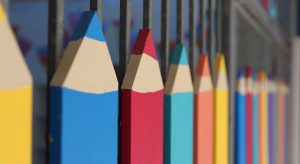
The Weeden Heights Primary School’s Visual Arts program encourages creativity. The program provides for each student’s interests, age and developmental stage. It builds on their acquired skills and knowledge as they participate in a variety of art experiences. The essential components of the Visual Art program are:
- creating and making
- exploring and responding
The students participate in a weekly sessions in the Art room. During this time they are experience a wide range of activities through which they develop and explore a variety of skills and techniques through planned units of work.
The Visual Arts curriculum aims to develop students’:
- conceptual and perceptual ideas and expressions through design and inquiry processes
- visual arts techniques, materials, processes and technologies
- critical and creative thinking, using visual arts languages, theories and practices to apply aesthetic judgment
- respect for and acknowledgement of the diverse roles, innovations, traditions, histories and cultures of artists, craftspeople, designers, curators, critics and commentators
- respect for visual arts as social and cultural practices, including industry practices
- confidence, curiosity, imagination and enjoyment and a personal aesthetic through engagement with visual arts making, viewing, discussing, analysing, interpreting and evaluating.
The seven main areas of the Visual Art program are: painting, drawing, collage, printing, threads and textiles, modelling and construction. Students are encouraged to explore the elements of art and to think, plan and research different ideas in order to gain a greater appreciation and understanding of the world around them. The students learn to value artworks in their own culture and the culture of others. We also aim to capitalise on authentic events occurring within the school and students work on art to support this event as it does enrich learning experiences and student ownership of the school eg students have experienced creating musical instruments, designing and making costumes and props for the whole school production, garden art and explored art in our language (French) and other cultural activities.
The student’s art work is shared together before work is displayed in classrooms and in the corridor, or taken to a home environment to be valued. We also take opportunities to participate in art competitions.
STEAM (Science, Technology, Engineering, Arts, Mathematics) - Learn More
At Weeden Heights Primary School, all of our students attend a weekly STEAM session with a specialist teacher and it features in our classroom inquiry investigations.
STEAM education includes specific knowledge across four learning areas plus the inter-relationship between them. There are opportunities for STEAM learning to be delivered in an integrated way, supporting deeper engagement in these four learning areas.
STEAM is integral to the following learning areas:
- Mathematics
- Science
- Design and Technologies
- Digital Technologies
- The Arts
During these sessions students work collaboratively in student groups to problem solve and develop their risk taking skills and perseverance. The teacher links the creative problem solving activities to real life experiences and makes links to our garden eg designing and developing an irrigation or watering system, designing a hot house to support the propagation of plants.
In this subject students also enhance their coding skills through robotics. The school makes great use of Blue Botts to enhance mathematics and logic skills and students are set an individual program using code.org. The focus of this program is to teach students basic coding languages and to allow students to work at their own pace while developing their individual coding skills.
Extensions & Enrichment Programs
At Weeden Heights our goal is to deliver engaging opportunities which enhance leadership capacity, extension and enrichment. We pride ourselves on providing a personalised learning approach for all students. Learning is catered directly for their learning needs. Our teachers are well equipped to develop the abilities of every child within each lesson in the classroom. Teachers will individually plan for students to ‘enrich’ or ‘extend’ students based on their prior knowledge. Teacher focus groups, embedded in every lesson, are designed to challenge every student towards working towards their next learning step.
Student Leadership roles are promoted throughout the school including class roles and responsibilities, house and school captains, student representative council, our buddies program and extra duties taken on by senior students. All Year 6 students undertake a Young Leaders program in order to develop their leadership capacity and to support them as captains.
In classrooms, lessons are differentiated to cater for the diverse range of the learning needs of our students. We offer open-ended tasks, a range of groupings within and across grades, incursions and excursions to support student’s individual learning goals.
Extra-curricular opportunities include lunchtime activities and competitions, musical and performing arts workshops, sporting events and a chess club.
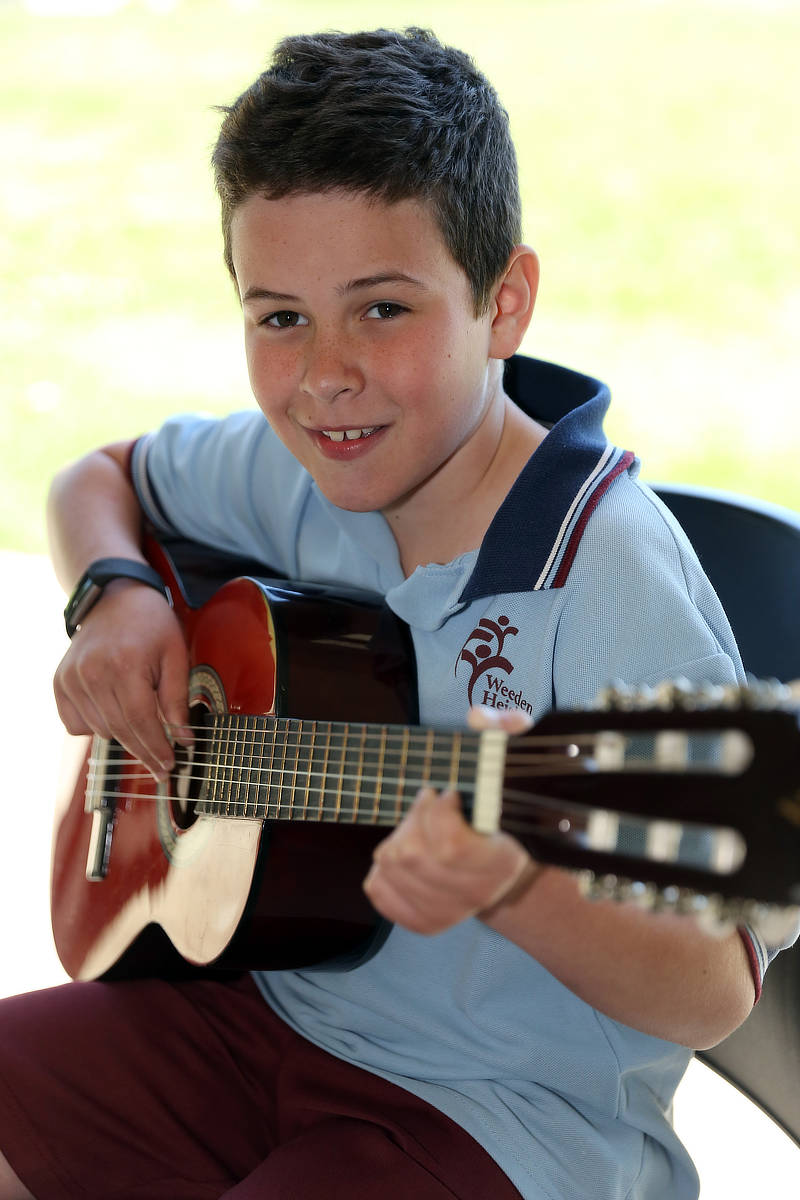
Within the Classrooms
- Rigorous Assessment schedule to identify each students learning needs
- Ongoing assessment built into each session
- Individual Education Plans
- Students grouped for like learning needs
- Each student has individual learning goals in reading, writing and Mathematics
- Individual book boxes in the reading block
- Self- paced programs in Mathematics and coding
- Individual spelling program
- Inquiry learning approach
Programs outside the classroom
- Bridges Reading Support Program
- Extension Mathematics groups
- Extension Reading Groups
- Extension Writing groups
- School Captain’s lunchtime program
- Talent shows
- Games
- Sports coaching
- Coding club
- Robotics
- Library club
- Art shows
- Cartooning
- Circus skills
- Competitions
- TOM (Tournament of Minds)
- Maths Olympiad
- Premiers’ Reading Challenge
- ICAS – University of New South Wales Competitions
- Public Speaking Competitions
- Visual Arts
Programs provided by External Providers
- Private and group music sessions: guitar, keyboard, voice, brass and woodwind
- Chess Coaching
- Chess Competitions
- Wiseones (entry for gifted students based on testing)
- All Prep students tested for giftedness
- Karate lessons
- Chinese School
- Greek School
- Code Club
Class Information
Welcome to your school year at Weeden Heights PS!
To help support your child for a successful year, each teacher has created an information book to highlight key details specific to your child’s class.
If you ever have any questions then please make a mutually agreeable time to speak with the classroom teacher.
Camping Program
Whole School Camping Program
At Weeden Heights Primary School the camping program aims to provide each student with the opportunity to gain knowledge, experience and a sense of achievement through a variety of challenging situations within different environments. This program promotes and supports the students’ independence and builds positive teacher-child and peer group relationships. School camps support the implementation of the Victorian Curriculum: Physical Education, Personal and Social Learning. This also builds on from our Kitchen/Garden program.
The primary focus of the camping program at Weeden Heights Primary School is an engaging and activity based camp experience. Each year students build on to their ‘camping experiences’ through a whole school approach.
It all begins in Prep with a Prep breakfast. Students in Year 1 participate in a late stay and the Year 2 students do a sleep over at the school. From Year 3 to 6, students attend external camps each year. Year 3 and 4 students tend to go on outdoor adventure camps for two nights and our Year 5 and 6 students alternate between an outdoor education camp and an educational tour (eg Sovereign Hill to align with a historical investigation).
Camps are a fabulous way for student to build relationships and develop their independent skills. They are valued and well supported by the families at Weeden Heights PS.
Swimming Program
At Weeden Heights Primary School, all students are encouraged to be part of our Swimming Program which delivers quality swimming and water safety education so that all students have the opportunity to learn how to swim, but more importantly, develop lifelong skills and awareness in water safety. The program is part of our Health and Physical Education program.
The program operates off site at Aqualink Nunawading and is delivered by qualified swimming instructors in small groups.
Stephanie Alexander Kitchen & Garden Program
Pleasurable and healthy food education is at the heart of the philosophy of the Stephanie Alexander Kitchen Garden Program. We are most fortunate to be a founding school to implement the program.
The Kitchen and Garden Program at Weeden Heights Primary School aims to encourage and facilitate learning for life through an engaging, fun and hands on experience. Students are engaged in critical thinking, communication and collaboration while working in the garden and the kitchen.
In both the kitchen and the garden sessions, students work together in small groups with the support of the kitchen and garden specialists and program volunteers. Fresh produce, grown by students in our garden, is harvested and forms the ingredients for the recipes in the kitchen program. Finished dishes are arranged with pride and care on tables set with flowers from the garden, and the shared meal is a time for students, volunteers and specialists to enjoy each other’s company and conversation. In the garden, volunteers assist students with tasks such as planting and harvesting crops, looking after the chickens and applying mulch to the soil.
We aim to promote and strengthen our community involvement in the Program and encourage the understanding of a variety of different foods as well as the relationship between the garden and the table. Weekly garden sessions give students the opportunity to plant, observe growth and changes and harvest produce.
Through integration in the curriculum, students develop a practical understanding of environmental issues, build self-esteem, confidence, connectedness and develop a sense of achievement through kitchen and garden activities. This specialist subject strengthens our classroom inquiry learning investigations a focus on Science. While it naturally supports both environmental and chemical science, students also develop their measurement Mathematics skills and writing skills through activities and the practical application. The kitchen and garden program cover many areas of the Victorian Curriculum.
At Weeden Heights, students in Years 3-6 are involved in the Stephanie Alexander Kitchen Garden Program with sessions running either weekly or fortnightly in both the kitchen and garden.
